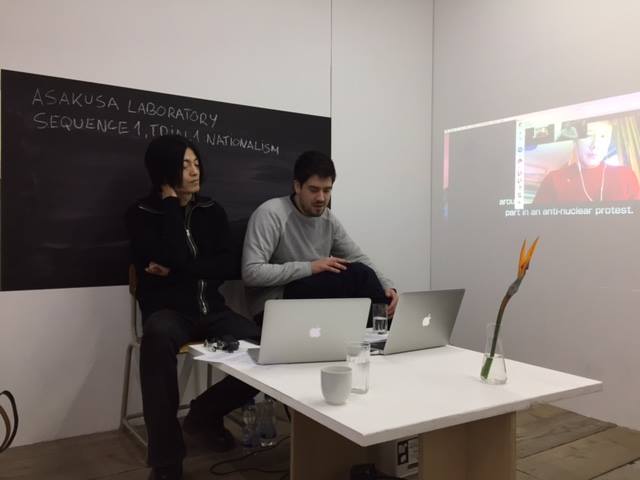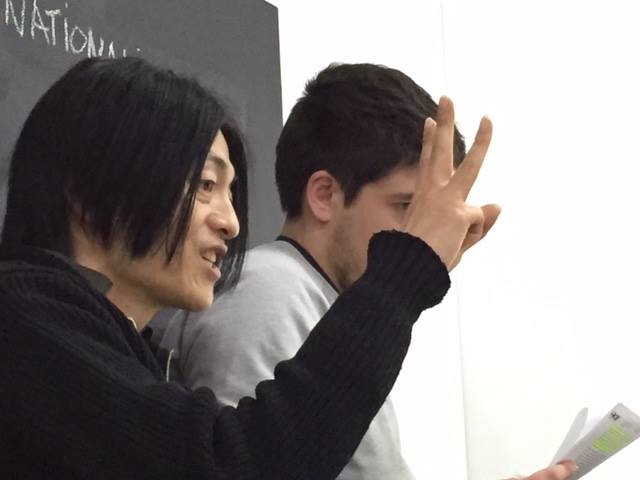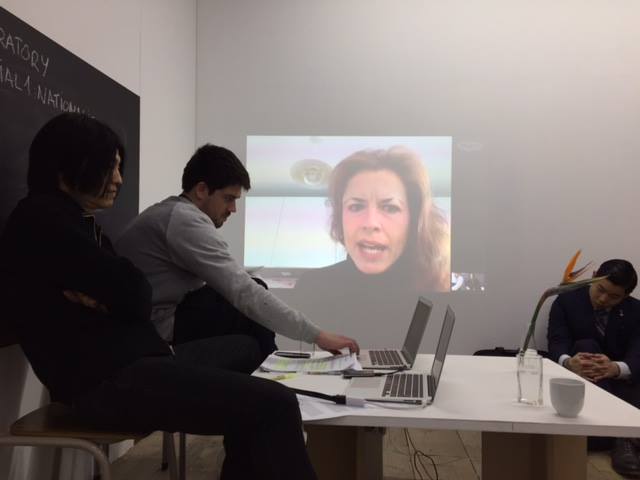ASAKUSA is delighted to announce a series of partly online-based symposiums aimed at advancing curatorial research and interdisciplinary dialogue with fields such as political and social sciences. The programme has been initiated by Mateusz Sapija, Asakusa's first resident curator (2016/17).
Some say that present time is the state of interregnum in which the current politics are no longer adequate to the status quo, yet the new solutions still have not been designed. Others, that 'the future has been cancelled'. Currently observable significant shift from recent notions of promising future towards spheres that are largely pessimistic comes from variety of reasons: as result of the traumatic 20th century, wide range of present crises - from still unresolved global financial turmoil, wealth inequality and austerity, to climate change and rising demographic aging - finally, lack of solutions offered by apathetic governments. Locally, also Japan - after 200 years of continuous acceleration - came to the moment of disbelief in top-down politics and neoliberalism. Japan is now one of the most unequal members of the OECD, and the country faces disastrous consequences of the dependence on nuclear energy, economic stagnation, gender inequality and reemergence of nationalist politics - all triggering the rise of social movements on a previously unprecedented scale. What we encounter now - globally and locally - is an entry to a period which consequences are unclear.
However, this condition cannot be infinite. In the time when current politics has so little to offer, the search for new solutions is inevitable. As pointed by Kolakowski, the crucial task is the question of timing when the new solutions are proposed and that is what this public programme will aim to contribute to - point the moment of the new beginning as now. The programme will involve both Japanese and international artists whose practice deals with socio-political matters, as well as a range of international and Japanese thinkers concerned with the problems of politics, sociology, activism, economy and the nation state. These activities – drawing upon previous Asakusa's activities - will aim to establish a platform for exchange between the fields of art as well as political and social sciences, in order to imagine future political possibilities and solutions to current crises. This will be achieved through a collaborative engagement in a three public discussions - combining presentations, screenings and discussions - devoted accordingly to the topics of nation state and nationalism, democracy and contemporary capitalism.
PEOPLE
— Eiji Oguma
— Kristin Surak
— Vincent W. J. van Gerven Oei
— Asakusa
— Mateusz Sapija



